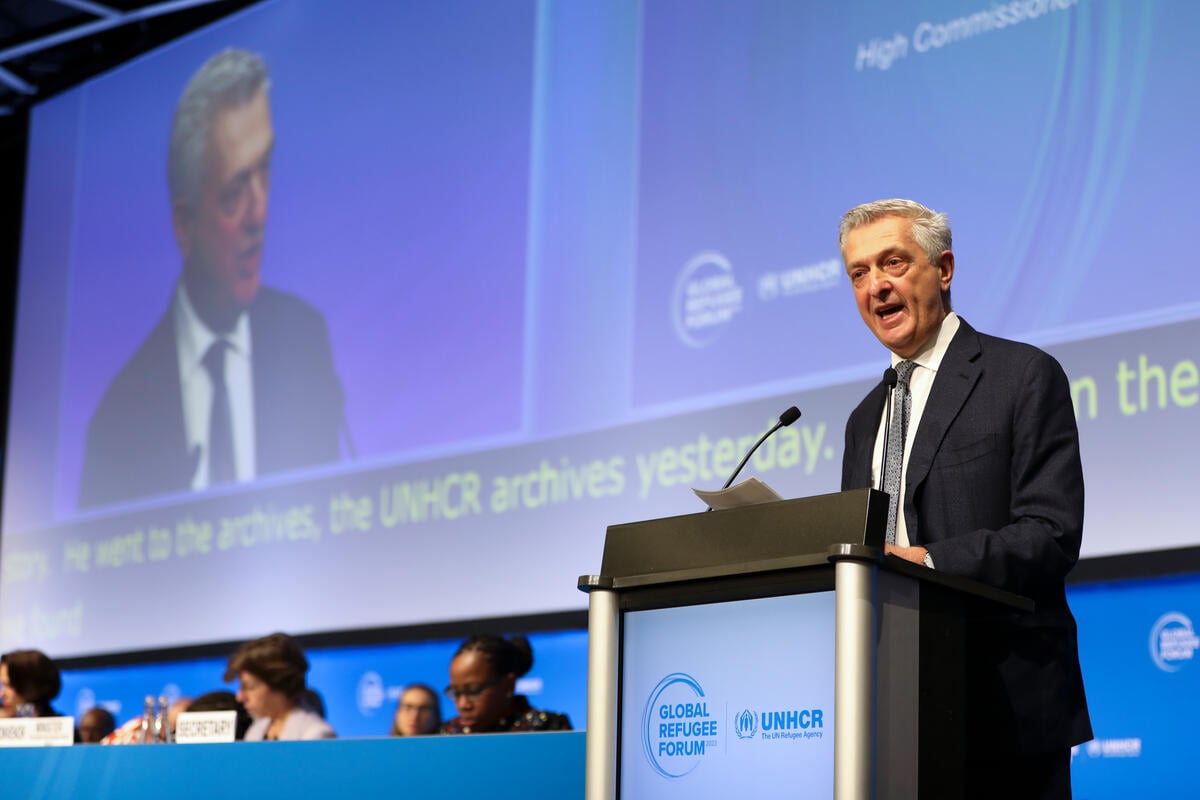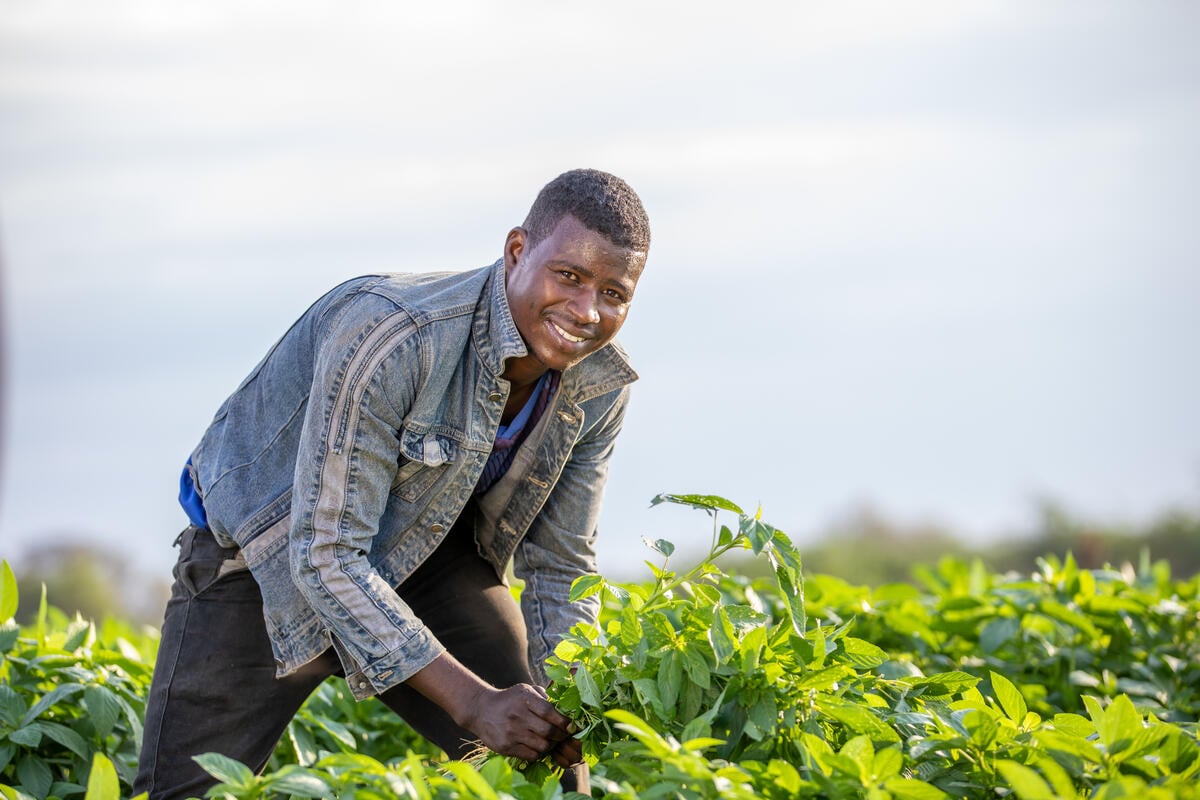'Hello Mum … It's me, Mohamed'

'Hello Mum … It's me, Mohamed'
Refugees evacuated to Rwanda from detention in Libya escape beatings, extortion, torture and rape. They also find relief in safely reconnecting with family.
A simple call to loved ones back home who may have feared them dead after they lost contact.
Mohamed Daood Ali, a refugee from Sudan’s Darfur region, had not spoken to his mother in the two years he was held in a detention center in Libya. He left Darfur and travelled to Libya in the hopes of crossing the Mediterranean to Europe but never made it out.
“Things never worked out the way I had hoped.”
Mohamed takes a deep breath and dials a number sent to him by a relative on Facebook. It is the first time since he was detained that he has been able to communicate freely.
“Hello mum,” he says, after a woman’s voice answers. He is sitting on a step outside his new accommodation at a refugee transit facility in Gashora, in south-eastern Rwanda, a cell phone pressed on his ear.
“Who am I speaking to?” his mother says, in Arabic.
“It’s me, Mohamed,” he said.
“Mohamed Daood? Mohamed Daood how are you?” she says, and laughs in surprise.
Mohamed is one of hundreds of refugees to land in Rwanda from Libya since September on evacuation flights organized by UNHCR, the UN Refugee Agency. The agency has assisted 2,250 refugees and asylum seekers to leave Libya in 2019 including 840 that have been resettled to a third country.
More than 1000 people have died trying to cross the Mediterranean this year. Phone calls like Mohamed’s delight worried family members who fear their loved ones may have perished. They can also bring mixed emotions.
“I am in Rwanda, mother,” Mohamed says, tears rolling down his face. “Things never worked out the way I had hoped.”
“My mum said, this is not a safe place for you.”
The 32-year-old accounting student fled Darfur, a region in the west of Sudan that has been devastated by conflict since 2003 when rebels took up arms against the government. His mother urged him to leave after we was arrested at a student protest and released with a warning never to speak about Darfur.
“My mum said, this is not a safe place for you. Just find a safe place or maybe you will be killed,” Mohamed recalls. "Many students were killed."
His family put together the little money they could to send him away to safety and on a journey that would take him to Egypt and onwards to Libya.
People entering, or trying to leave Libya without valid documentation are often at risk of being arrested and detained. Mohamed tried to cross the Mediterranean by boat, but was arrested on his journey through the Libyan capital of Tripoli.
“When we arrived [in the detention centre], there were people who had not seen the sun for one year,” he said. “People say you are a slave and they beat you, there is no food.”
Around 2,500 refugees and asylum seekers are held in detention centres in Libya, according to UNHCR. Some 306 have been evacuated to Rwanda under a deal between its government, UNHCR and the African Union.
Such examples of solidarity were showcased at the Global Refugee Forum in Geneva in December. It brought together governments, international organizations, local authorities, civil society, the private sector, host community members and refugees themselves to discuss the best policies to protect refugees and help them and their hosts to thrive and find lasting solutions.
Mohamed is now helping with Arabic translations at the transit center and says he is happy in Rwanda but hopes he can be resettled to another country to start a new life.
“Everything is the still the same back home, I cannot go back. I need to follow my education and work hard to help my people - that is my hope right now,” he says.










